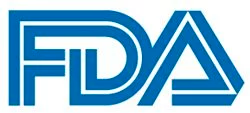News
Article
Petosemtamab Receives FDA Breakthrough Therapy Designation in Pretreated HNSCC
Author(s):
The FDA has granted breakthrough therapy designation to petosemtamab in recurrent or metastatic head and neck squamous cell carcinoma.
US FDA

The FDA has granted breakthrough therapy designation to the bispecific antibody petosemtamab (MCLA-158) for the treatment of patients with recurrent or metastatic head and neck squamous cell carcinoma (HNSCC) who have experienced disease progression following treatment with platinum-based chemotherapy and a PD-L1/PD-1 inhibitor.1
This regulatory decision follows the FDA’s August 2023 decision to grant fast track designation to petosemtamab for this indication.
Data from the ongoing phase 1/2 MCLA-158-CL01 trial (NCT03526835) of petosemtamab monotherapy in advanced solid tumors, including recurrent or metastatic HNSCC, supported this designation.
Early findings from the cohort-expansion portion of this study were presented duringthe 2023 AACR Annual Meeting.2 At a data cutoff of February 1, 2023, efficacy-evaluable patients treated with petosemtamab (n = 43) experienced an overall response rate of 37.2% (n = 16; 95% CI, 23.0%-53.3%), including 1 complete response and 15 partial responses. Moreover, 15 patients achieved a best response of stable disease. The disease control rate was 72.1% (n = 31; 95% CI, 56.3%-84.7%), and patients had a median time to response of 1.8 months (range, 0.8-3.5). The median duration of response was 6.0 months (95% CI, 3.7-not calculable), and 62.5% of responders (n = 10) had ongoing responses at the data cutoff.
The median progression-free survival in the efficacy-evaluable population, with 14 patients censored, was 5.3 months (95% CI, 3.7-6.8). Notably, 29 patients experienced progression. In the overall population (n = 49), the median overall survival was 11.5 months (95% CI, 7.2-20.6). Twenty-nine patients were still alive at the data cutoff.
Regarding safety, petosemtamab had a manageable safety profile. All patients who received petosemtamab at the recommended phase 2 dose (RP2D) of 1500 mg once every 2 weeks in both the dose-escalation and cohort-expansion portions of the trial (n = 80) experienced at least 1 adverse effect (AE), regardless of causality. A total of 53% of patients (n = 42) had grade 3 to 5 AEs regardless of causality, and 33% of patients (n = 26) had grade 3 to 5 AEs suspected to be related to petosemtamab treatment. Seventy-four percent of patients had grade 1 to 4 infusion-related reactions (IRRs), and 21% of patients had grade 3 to 4 IRRs.2
Updated efficacy, durability, and safety data from this cohort will be presented in the second half of 2024, including during a rapid oral presentation at the 2024 ASCO Annual Meeting.1,3
“We are excited and encouraged to receive breakthrough therapy designation for petosemtamab, which further validates its potential to become a new standard of care for patients with previously treated HNSCC,” Ashley Pereira, PharmD, senior vice president of Regulatory Affairs at Merus, stated in a news release.1 “We look forward to continued constructive conversations with the FDA as we move forward in our plan to initiate a phase 3 trial in previously treated HNSCC mid-2024 and prepare for a potential phase 3 trial evaluating the combination of petosemtamab and pembrolizumab [Keytruda] in previously untreated patients.”
The open-label, multicenter, multinational, 2-part study consisted of a dose-escalation portion to identify the RP2D of petosemtamab and a dose-expansion portion with several single-agent cohorts.4 The dose-escalation portion of this study is complete, and the RP2D of petosemtamab was identified based on the agent’s safety, pharmacokinetics, and predicted receptor occupancy.2,4 No dose-limiting toxicities were reported.2
The study enrolled patients with histologically or cytologically confirmed solid tumors with evidence of metastatic or locally advanced disease that was not amenable to standard, curative-intent therapy.4 In the dose-expansion portion of the study, the activity, safety, and tolerability of single-agent petosemtamab will be evaluated in cohorts of selected solid tumor indications with dependency on EGFR signaling. These include locally advanced unresectable or metastatic HNSCC, gastric/gastroesophageal junction adenocarcinoma with EGFR amplification and/or high EGFR expression, esophageal carcinoma, and pancreatic adenocarcinoma. For the HNSCC cohort of the dose-expansion portion, patients must have incurable recurrent or metastatic HNSCC that progressed on or was intolerant to PD-1/PD-L1 inhibitors and platinum-based chemotherapy; measurable disease; and an ECOG performance status of 0 or 1.
Patients in this expansion cohort will receive intravenous petosemtamab at the RP2D in 28-day cycles until progressive disease or toxicity. Tumor assessments will be performed every 8 weeks, and patients will undergo survival follow up for up to 18 months after discontinuing treatment. Notably, the administration of petosemtamab plus pembrolizumab also will be initially evaluated in patients with HNSCC who are eligible to receive first-line pembrolizumab monotherapy.
References
- Petosemtamab granted breakthrough therapy designation by the U.S. FDA. News release. Merus. May 13, 2024. Accessed May 13, 2024. https://www.globenewswire.com/news-release/2024/05/13/2880374/37568/en/Petosemtamab-granted-Breakthrough-Therapy-Designation-by-the-U-S-FDA.html
- Cohen EEW, Fayette J, Daste A, et al. Clinical activity of MCLA-158 (petosemtamab), an IgG1 bispecific antibody targeting EGFR and LGR5, in advanced head and neck squamous cell carcinoma (HNSCC). Cancer Res. 2023;83(8):CT012. doi:10.1158/1538-7445.AM2023-CT012. https://aacrjournals.org/cancerres/article/83/8_Supplement/CT030/725402/Abstract-CT030-Phase-I-study-of-IBI351-GFH925
- Merus announces abstracts accepted for presentation at the 2024 ASCO Annual Meeting. News release. Merus. April 24, 2024. Accessed May 13, 2024. https://www.globenewswire.com/news-release/2024/04/24/2868746/37568/en/Merus-Announces-Abstracts-Accepted-for-Presentation-at-the-2024-ASCO-Annual-Meeting.html
- A study of bispecific antibody MCLA-158 in patients with advanced solid tumors. ClinicalTrials.gov. Updated March 5, 2024. Accessed May 13, 2024. https://clinicaltrials.gov/ct2/show/NCT05497336









